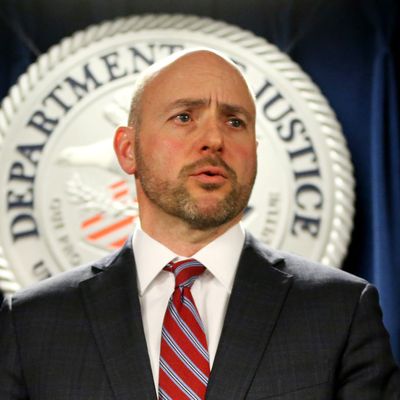
The Varsity Blues scandal that took over the nation’s headlines last week was shocking, but one notable aspect of the case that is rarely discussed was how aggressive and intentional federal prosecutors were in using their powers to go after people who, from a traditional law-enforcement perspective, were the lowest-level players in the crime — namely, the dozens of parents who paid bribes to try to get their kids into competitive colleges, and university employees who took them.
Like many federal cases, Varsity Blues involved a cooperating witness, or “flipper” — the Orange County–based college admissions consultant Rick Singer. Singer was the ringleader who received $25 million from dishonest parents to bribe coaches and university administrators to help their children gain unfair admissions advantages. He pleaded guilty to a variety of serious crimes and agreed to cooperate in the hopes of a reduced sentence.
In a lot of other cases, nailing the kingpin would have been the end of it. But here the Feds gave Singer a deal to cooperate. Of course, federal prosecutors normally give cooperation deals to work up the ladder of criminal culpability. But here, they gave less prison time to a ringleader to help them work down the ladder to build cases against his clients.
Why the unusual strategy of going easier on Singer in order to get the little guys (even after Singer betrayed the Feds’ trust by tipping off some of his co-conspirators)?
The short answer is that prosecutors seem to have understood how much outrage their indictments would provoke, and considered that when they crafted their broader legal strategy.
The first thing to understand is that it is very difficult to investigate and prosecute college admissions schemes like this one. To prove their guilt beyond a reasonable doubt, prosecutors need to establish that the parents and university officials knew about the scam and were deliberately trying to move it forward. To meet that burden, prosecutors will rely on recorded calls with Singer that would have been very difficult to obtain without his cooperation.
As a result of that cooperation, prosecutors charged 33 parents as well as 13 coaches and associates of Singer’s businesses. It is difficult to overstate the amount of work involved in developing charges against 46 people and then proceeding to trials or guilty pleas and ultimately to sentencing. Prosecutors must gather and analyze evidence, draft indictments and present them to grand juries, gather and produce discovery to the defense, litigate motions contesting the charges, prepare plea agreements and sentencing memoranda, and could potentially have to try some cases before juries. That will amount to thousands of hours of work.
Federal prosecutors are always presented with many different investigations they can pursue and cases they can bring. Whenever resources are expended in one case, they cannot be expended in another direction. Every prosecutor and FBI agent working on one of these 47 criminal cases could be working to nab another criminal.
Typically, to make decisions like that one, prosecutors weigh various factors including the amount of money involved in the fraud. While some of the bribes totaled many hundreds of thousands of dollars, some parents paid sums that were well below those typically involved in a federal fraud case. For example, actress Felicity Huffman and her husband, actor William H. Macy, paid $15,000 so their child could participate in a college entrance cheating scheme.
Why was Huffman charged with a federal felony when most potential defendants involved in a $15,000 fraud scheme would not be? There is a legal concept called “general deterrence,” under which prosecutors weigh the impact of a given set of charges on the public at large. For example, we still talk about the prison time served more than a decade ago by Martha Stewart. The impact of her sentence on the public is greater than the impact of the sentence of an unknown individuals — and it’s safe to assume that it deterred some people who otherwise would have committed a crime.
Prosecutors went hard against Huffman and other high-profile defendants in part because of the impact their cases would have on the rest of us.
Many of the other defendants were not high-profile, but they abused positions of trust. Those individuals, university officials and coaches, were charged as part of a racketeering conspiracy. That is also an unusual move by federal prosecutors. Federal racketeering statutes are complicated to charge and prove up, so most white-collar cases involve fraud charges. It’s unclear why prosecutors chose to charge racketeering — there are multiple possible reasons — but the end result will be higher sentences under the federal sentencing guidelines for those defendants.
So a lot of the value of this massive federal investigation lies the debate that it generated — including all the outrage that it generated on traditional and social media. Rage got us talking, and that got us thinking — and that might be the best way to change behavior.
As the first person in my family to attend college, I was appalled to see wealthy parents cheat the system to the detriment of children who worked hard but lacked their wealth. We should also use these prosecutions to launch a broader debate about a system that compares wealthy students who receive private tutors and submit applications prepared by professionals with students who can barely afford the application fees.
Given the difficulty of prosecuting cases like this, and the fact that there are many legal practices that also unfairly advantage privileged students, we shouldn’t sit back and expect federal prosecutors to clean up college admissions. That’s a job for all of us.





























